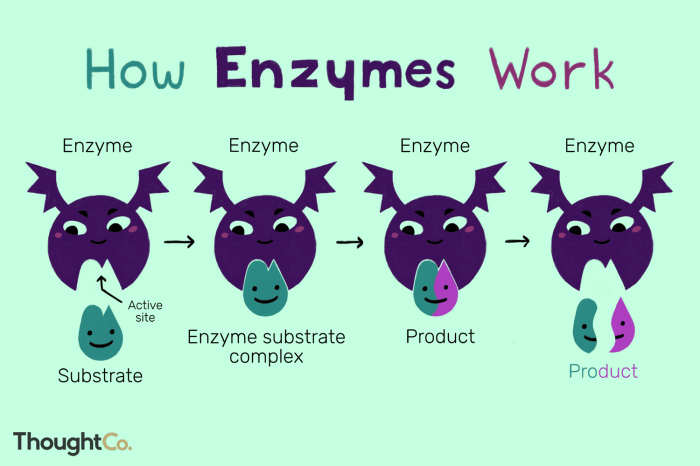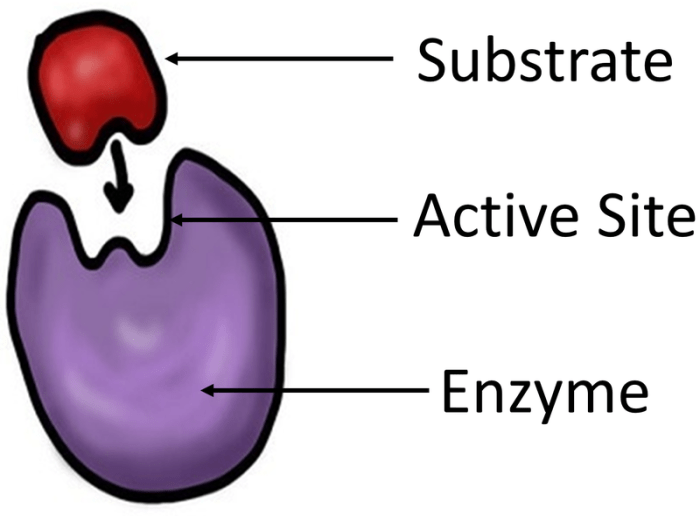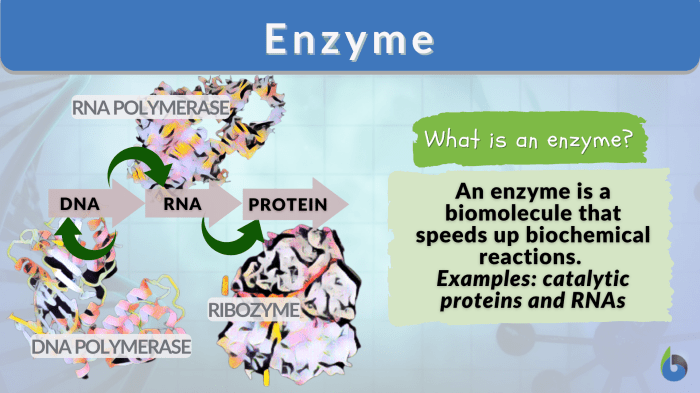All of the following properties are associated with enzymes except: a property that challenges the conventional understanding of enzyme characteristics. This exceptional property has profound implications for enzyme function and regulation, shaping our comprehension of these remarkable biological catalysts.
Enzymes, the workhorses of biochemical reactions, possess a remarkable array of properties that endow them with their catalytic prowess. Yet, amidst this repertoire of attributes, there lies an exception—a property that enzymes notably lack. This deviation from the norm invites exploration, as it unveils a nuanced understanding of enzyme behavior.
Properties of Enzymes: All Of The Following Properties Are Associated With Enzymes Except

Enzymes are biological molecules that act as catalysts for biochemical reactions. They possess several unique properties that contribute to their catalytic efficiency and specificity.
Properties Associated with Enzymes
- Protein nature:Enzymes are composed of amino acids and are classified as proteins.
- High specificity:Enzymes are highly specific for their substrates, meaning they catalyze only certain reactions involving specific molecules.
- Efficient catalysis:Enzymes significantly increase the rate of reactions, often by several orders of magnitude.
- Reversibility:Most enzymes can catalyze both forward and reverse reactions, depending on the concentrations of reactants and products.
- Optimal pH and temperature:Enzymes have an optimal pH and temperature range at which they exhibit maximum activity.
- Allosteric regulation:Some enzymes are regulated by allosteric effectors, which bind to specific sites and modulate enzyme activity.
- Competitive inhibition:Enzymes can be inhibited by molecules that compete with the substrate for binding to the active site.
- Non-competitive inhibition:Enzymes can also be inhibited by molecules that bind to sites other than the active site and interfere with enzyme function.
Exceptions to Enzyme Properties, All of the following properties are associated with enzymes except
One property that is notassociated with enzymes is spontaneous generation.
Enzymes do not create new molecules from scratch; they facilitate the conversion of one molecule to another by lowering the activation energy required for the reaction. The substrates for enzyme-catalyzed reactions must be present before the enzyme can act.
Implications of the Exceptional Property
The absence of spontaneous generation in enzymes has several implications:
- Enzymes require substrates:Enzymes cannot produce new molecules without the presence of the necessary substrates.
- Enzymes do not violate the laws of thermodynamics:Enzyme-catalyzed reactions follow the laws of thermodynamics, and enzymes cannot create energy or matter.
- Enzymes are essential for life:Enzymes play a crucial role in virtually all biochemical processes, and their absence would make life impossible.
Comparative Analysis
| Enzyme Property | Presence/Absence of Spontaneous Generation | Implications for Enzyme Function |
|---|---|---|
| Specificity | Present | Enzymes catalyze only specific reactions. |
| Catalytic efficiency | Present | Enzymes increase the rate of reactions. |
| Reversibility | Present | Enzymes can catalyze both forward and reverse reactions. |
| Allosteric regulation | Present | Enzymes can be regulated by allosteric effectors. |
| Spontaneous generation | Absent | Enzymes do not create new molecules from scratch. |
FAQ Guide
What is the significance of the exceptional property in enzyme function?
The exceptional property modulates enzyme activity and specificity, influencing the enzyme’s ability to recognize and transform specific substrates.
How does the absence of this property affect enzyme regulation?
The absence of the exceptional property alters the enzyme’s response to regulatory mechanisms, impacting its overall activity and the efficiency of metabolic pathways.

